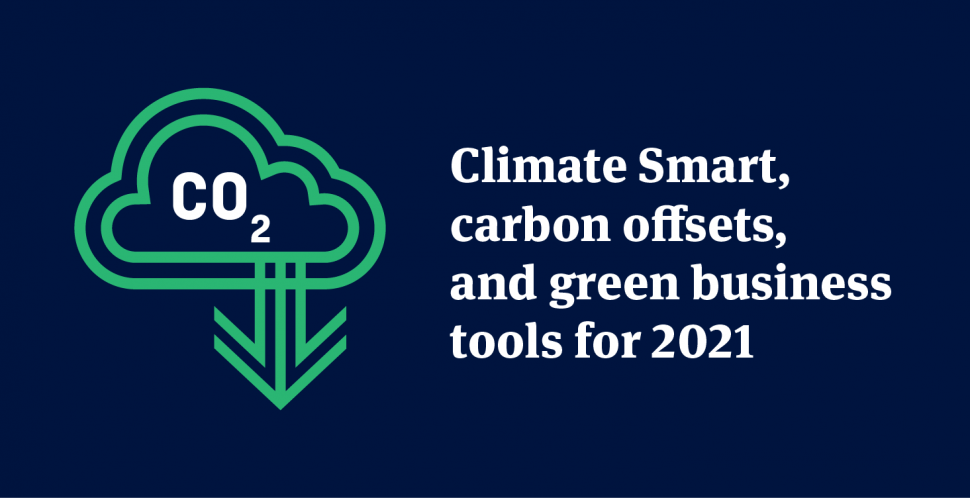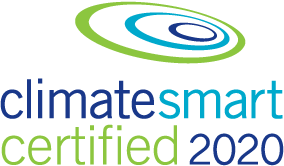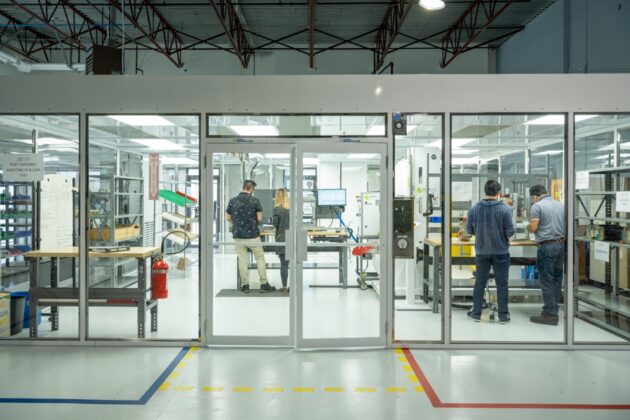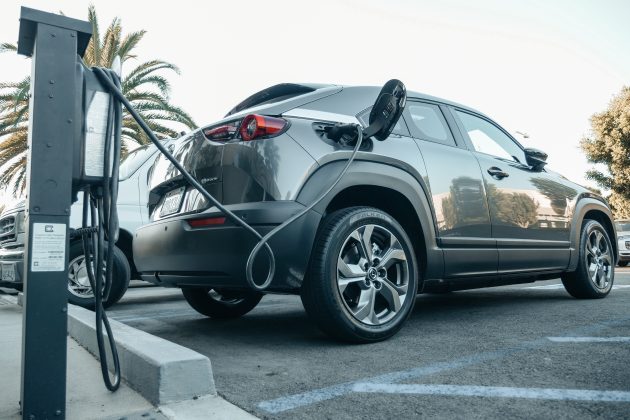Our State of Vancouver’s Green Economy report published in 2018 showed that about one in 10 Vancouverites works in the green economy, and that 30 percent of Vancouver businesses offered a service or product devoted to restoring or improving the environment.
While both business and consumer markets for “sustainability” and “green” products and services have steadily grown year-over-year, a green business also refers to enterprises with low-carbon or even zero-emission operations. More and more businesses are embarking on this journey. Thankfully, there are many science-backed resources for businesses to measure, track and improve the size and intensity of their carbon footprint. Climate Smart is one such resource and service.
VEC just renewed our Climate Smart certification for 2020, and we’re taking a moment to celebrate this with a quick explainer of what it means, and share some tools available to businesses getting ready to embark on a similar journey.
What is Climate Smart?
Climate Smart is a local Vancouver social enterprise that helps small and medium enterprises track and reduce their greenhouse gas emissions. To be Climate Smart certified means that VEC has completed a greenhouse gas (GHG) emissions inventory for the previous year and created an emissions reduction plan for the upcoming one. Climate Smart has been working with businesses for over a decade and has assisted more than a thousand businesses with calculating their greenhouse gas inventories.
VEC has completed a GHG inventory for the past three years. We find the process empowers all our staff to understand how each operation within our organization has an impact on emissions, and underscores the fact that there is opportunity to mitigate and reduce emissions at every decision.
The Climate Smart greenhouse gas inventory evaluates emissions based on whether they are scope one, scope two or scope three emissions.
Did you know?
Scope one emissions are direct emissions from operations under the organization’s control (e.g., manufacturing and processing) and vehicle fleets. Scope two emissions are indirect from sources that are owned by another entity, such as utilities. Scope three emissions are all other indirect emissions, including everything from employee commuting, to business travel and office supplies. As VEC has no product manufacturing or processing products, most of the emissions we generate are scope three emissions.
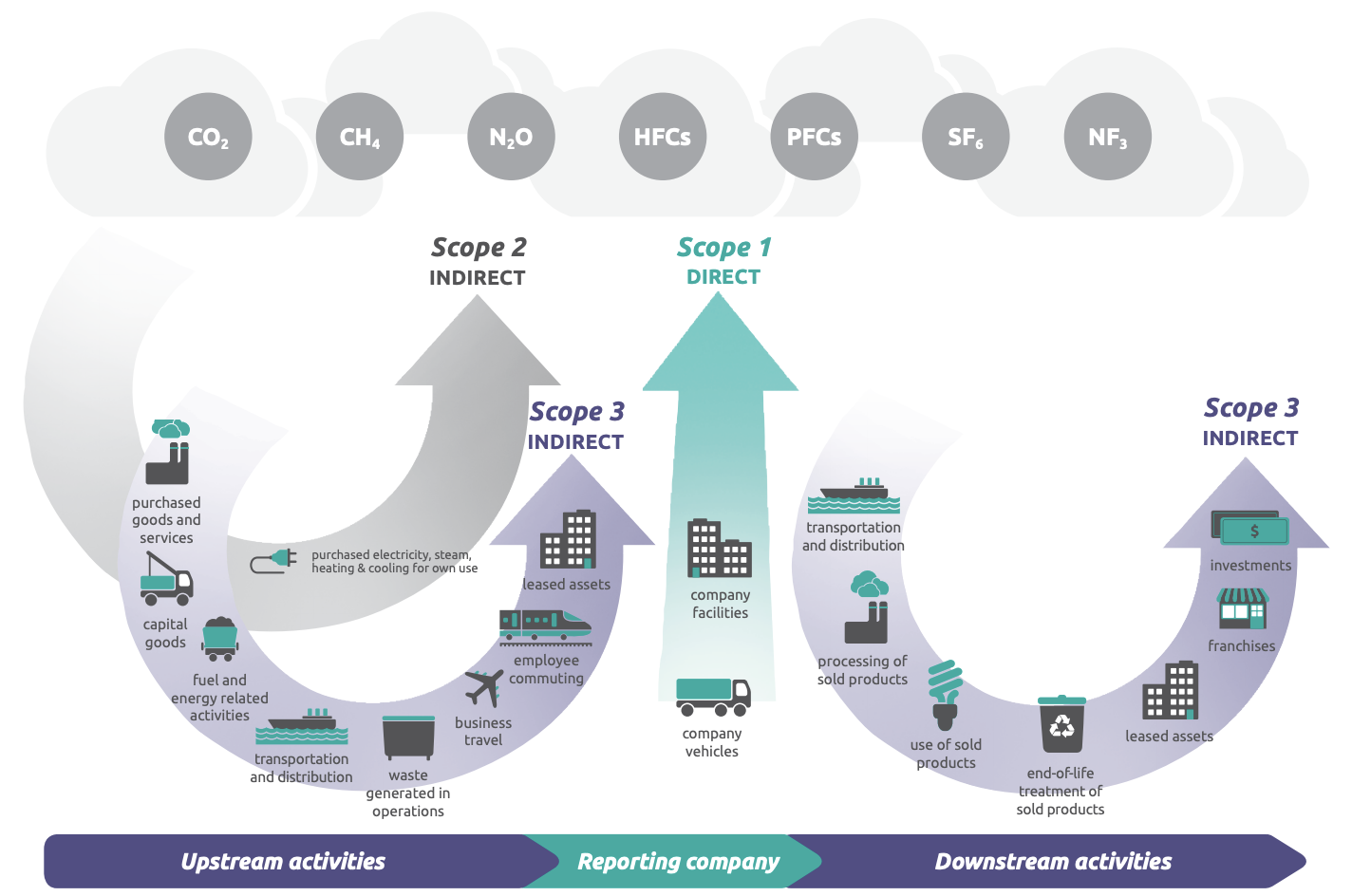
Figure: Overview of GHG Protocol scopes and emissions across the value chain
Source: GHG Protocol, Technical Guidance for Calculating Scope 3 Emissions
Carbon Offsetting is one of many footprint-reduction tools
Since 2012 VEC has reduced its emissions per employee by 25 percent and will continue to evaluate new policies and best practices to reduce and mitigate emissions. This year, VEC will be purchasing carbon offsets to account for unavoidable emissions generated by our activities, such as business travel. By purchasing carbon offsets VEC can contribute to infrastructure, economic development and energy projects working to reduce emissions.
When selecting a carbon offsets portfolio, we had some key criteria in mind for our ideal portfolio. While different organizations may have different needs or interests, our main requirements were simple:
- We required a proportion of its projects to be local to Canada
- We wanted the portfolio to support economic development activities
- We wanted to account for the cost per tonne
- We must be able to ensure the portfolio and offsets supplier has third-party validation
In addition to the BC Carbon Registry of validated projects, there are a few other organizations to purchase validated carbon offsets. If you are interested in using this tool, we urge you to think hard about your organizational goals and how the offsets portfolio would align with them.
VEC has purchased carbon offsets from Offsetters and is now a climate friendly company. Offsetters is a local organization with expertise in GHG measurement, including Carbon Disclosure Project reporting, offset project development, water footprinting, climate change science and policy, renewable energy and energy efficiency, and carbon finance. Moreover, Offsetters ensures that each of the projects within the portfolio are additional, meaning that any funding received through the portfolio enables the projects to move forward.
Managing Emissions in 2021
Going forward, the impact of COVID on our business activities will require a different process of collecting data in 2021. We will be learning from Climate Smart on how the process will evolve for greenhouse gas emission data collection.
As we head into 2021, it is valuable to evaluate where emissions are generated the most, and to incorporate best practices to reduce annual emissions year-over-year, especially when looking to meet emissions target goals such as Clean BC and the Paris Agreement while addressing the Sustainable Development Goals.
If you are interested in learning more about accounting for Climate Smart and GHG emissions and carbon offsets, check out:
- BC Best Practices Methodology for Quantifying Greenhouse Gas Emissions
- Greenhouse Gas Protocol
- United Nations Climate Change, Resources and Frequently Asked Questions
- World Business Council for Sustainable Development
- We Mean Business Coalition, Science Based Target Initiative
